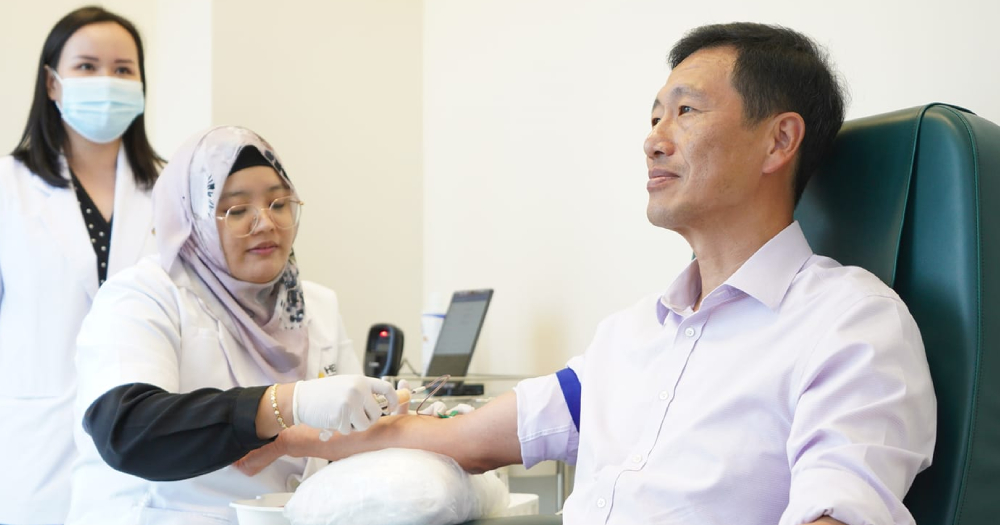Follow us on Telegram for the latest updates: https://t.me/mothershipsg
Singapore has launched the SG100K research programme in a bid to enable the development of precision medicine -- the tailoring of disease prevention and treatment after taking into account the differences in the persons' genes -- in Singapore.
As part of the study, 100,000 participants will have their health and wellbeing monitored through the years.
Minister of Health Ong Ye Kung has enrolled himself into the study as one of the 100,000 participants, in his "own little way to support this research programme".
What is the SG100K study?
This major longitudinal study -- a continuous examination of specific individuals over a period of time -- will monitor the health and wellbeing of 100,000 consented adults from different backgrounds and ethnicities for many years.
This data, along with detailed baseline health information such as health and lifestyle data, will enable researchers to map the genome -- "the blueprint of a person" -- of the 100,000 participants.
It is supported by the National Research Foundation (NRF), the study will be jointly conducted by:
- Lee Kong Chian School of Medicine (LKCMedicine) at the Nanyang Technological University (NTU)
- National University of Singapore (NUS)
- Singapore Eye Research Institute (SERI)
- National Heart Centre Singapore (NHCS)
Other healthcare partners will also be involved.
With the findings of SG100K, Ong said that Singapore will in future be able to "identify many more correlation between patients’ genetic make-up, their social and environment factors, and onset of severe diseases".
This will in turn "provide powerful bases for preventive care", he added.
Ong shared that this data will "enable and turbocharge the development of precision medicine".
What is precision medicine?
According to the U.S Food & Drug Administration (FDA), it refers to tailoring disease prevention and treatment after taking into account the differences in people's genes, environments, and lifestyles.
In short, it aims to give the right medicine to the right patients at the right time.
Ong said:
"Patients may be given the same treatment, not all will experience the same expected benefits, and it must be so because every human being is different".
Possible benefits include more cost-effective treatments with better outcomes, targeted clinical interventions to prevent diseases or its progression, along with optimised medication to minimise severe drug allergies.
He also acknowledged that we will "need to ponder quite deeply and take steps to harness the good of technology, while minimising the risks and downsides".
Ong continued, "Hence, for us to fully benefit from precision medicine, much work needs to be done, in clinical development, ascertainment of cost and medical effectiveness, healthcare financing policies, legislation, and determining what is encouraged, allowed and proscribed."
With the findings of SG100K, we can identify many more correlation between patients’ genetic make-up, their social and environment factors, and onset of severe diseases. These provide powerful bases for preventive care.
Top photo from Ong Ye Kung's Facebook
If you like what you read, follow us on Facebook, Instagram, Twitter and Telegram to get the latest updates.
